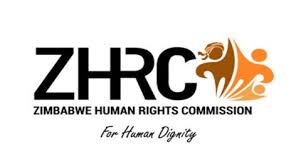A Bulawayo based pressure group, Ibhetshu LikaZulu, says it is worrying how the government continues to undermine the country’s independent commissions such as the Zimbabwe Human Rights Commission (ZHRC) by creating parallel structures that take away their powers.
Ibhetshu LikaZulu’s concern comes in the backdrop of the signing into law, the Constitutional Amendment (No.2) Bill, which introduced the creation of the Offices of Public Protector and Deputy Public Protector, both of whom will be appointed by the President after consultation with (not necessarily with the agreement of) the Judicial Services Commission and Parliament’s Committee on Standing Rules and Orders.
Some functions of ZHRC are transferred to the Public Protector -specifically, the investigation and remedying of conduct that violates human rights and freedoms, where the conduct is committed by “an organ of the State or a public institution or any officer of that organ or institution”.
An Act of Parliament may exempt officers and authorities from investigation by the Public Protector.
“We have noted with shock at the subversion of the will of the people in general and in particular taken aback by the amendment to the functions of the ZHRC,” said Secretary General of Ibhetshu LikaZulu, Mbuso Fuzwayo in an interview with CITE.
“We have noted that the government has in the recent past made its intentions to undermine the independent commissions clear by the creation of parallel structures that take away the powers of the independent constitutional bodies and parcelling it out to some executive-controlled bodies thus rendering them useless.”
Fuzwayo said a case in point was the National Peace and Reconciliation Commission’s role in the Gukurahundi atrocities, which was taken away and assigned to chiefs by President Emmerson Mnangagwa.
He added it was now concerning that the ZHRC’s key role as stated in Section 243, 1(e) of the Constitution, which is “to protect the public against abuse of power and maladministration by the state and public institutions and by officers of those institutions”, was taken away by the creation of the Office of the Public Protector.
“ZHRC is rendered useless because the commission can’t investigate police or Central Intelligence Organisation (CIO) brutality, or any violation by an arm or entity of the government so it becomes almost useless, as it will be recommending some issues to the Office of the Public Protector instead of what was envisioned by people in 2013 when they inputted their views into the constitution,” Fuzwayo said.
“Zimbabwe’s government use of state institutions against citizens to further the interest of the Zanu-PF party dates back to the early years of independence with the army and other security organs implementing genocide in Matabeleland and Midlands.”
This abuse has, also, over recent years manifested in the use of police and military force against unarmed citizens exercising their constitutional rights and freedoms, the secretary-general added.
“The above indicates that the government has a penchant to use state institutions for partisan ends. To curtail this, the people of Zimbabwe through the 2013 constitution saw it fit to create an independent strong body of incorruptible and eminent individuals to watch over it, not a body led by one individual who will be controlled by the executive,” he said.
The country, Fuzwayo indicated, needed the strengthening of ZHRC and resourcing it to ably carry out its mandate than reducing it to a civic body.
“Zimbabweans are aware that the ZHRC was doing a great job under very difficult times. We read their previous annual reports where the commission noted and condemned the use of food relief distribution by the government hijacked by and used as a Zanu-PF political tool,” he said.
“We saw the commission’s condemnation of the August 1, 2018 killings in Harare and condemning the abuse of state power against demonstrators. This has angered the government leading to the taking away of its key function.”
This move was described as a ‘serious’ threat to the freedom of the citizens and the country’s democracy, said Fuzwayo.
“It is symptomatic of the Zanu-PF regime’s unwillingness to open up democratic space. It also exposes its desire to continue abusing state institutions, officers and resources in violation of human rights and civil liberties. In light of this huge step in reversing the gains made by the birth of the 2013 Constitution, Ibhetshu LikaZulu calls upon a united front by the progressive organisations and individuals to protect the rights of citizens and the independence of the independent commissions,” said the secretary-general.

